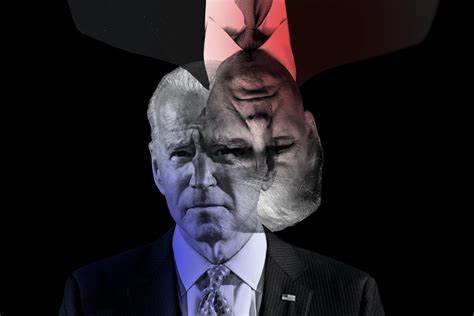With less than two months to the presidential elections, how the economic plans of the two candidates impact your personal finances?
Regardless of who wins on November 3, the incoming administration is going to inherit an economy that is still in collapse due to the pandemic. The President-Elect will need to oversee a vast economic recovery. Which candidates” economic plans seems better poised to do so?
Bankrate recently conducted a survey on how Americans are feeling. Americans are split almost right down the middle as to which candidate will have the better or worse impact on their personal finances.
“Asked specifically about personal finances, 39 percent of Americans said the Joe Biden/Kamala Harris ticket would be best. 35 percent said Donald Trump/Mike Pence. About 15 percent said they didn’t know and 11 percent said neither one.”
Here’s Hamrick’s analysis of how he thinks each candidate stacks up on major financial issues that matter most to your wallet.
Personal Taxes
Biden has proposed a tax increase at the highest bracket from 37 percent to 39.6 percent. He has stated that he has no intention of raising income taxes on any family making less than $400,000 a year. His increase is designed to hit only the top few percent of high-income earning Americans. This will leave the middle class and working class untouched by his tax increases.
Biden has also proposed raising capital gains and dividend taxes on high earners (those with more than $1 million in income).
Trump’s tax platform is less clear on details. However, he’s expressed support for middle-class tax cuts and lower capital gains rates. It’s not clear how his tax cuts on the middle class would work. Trump has suggested that the high end of long-term capital gains taxes might drop from 20 percent to 15 percent.
Upshot: Biden is proposing higher personal taxes that would fall only on the highest earners. In contrast, Trump’s plan is somewhat unclear, though he’s been consistently in favor of lower taxes, especially for higher earners.
The Stock Market
Certainly the ebbs and flows of the markets have a major impact on personal finances and your ability to grow wealth. While many things impact the market, the president does have influence over some key market forces. Business and corporate taxes are a primary one.
In addition to raising taxes on high-income individuals, Biden has also proposed reversing Trump’s 2017 tax overhaul.
On the other hand, Hamrick says that Trump’s push for a lower capital gains tax rate. He adds that Trump “has been very vocal towards loose monetary policy that supports the economy and business expansion.” While he doesn’t think this will change much under Biden, it “is an unknown factor, and could potentially cause a big upheaval in the market.”
Yet, if history is to be believed, the stock market does tend to do better under Democratic presidents than Republican ones.
Upshot: The market will likely make some knee jerk reactions to a Biden win that may cause some losses, but, should shake out for the long-term. Trump’s ideas have always been favorable to the markets. Trump deregulations have unshackled businesses and sparked more investment and hiring.
Direct Federal Spending
Americans’ personal finances also are largely dependent on how much assistance they’re receiving from the government. Especially as part of COVID-19 relief efforts. With the economy a mess and high levels of unemployment for extended periods, many Americans need help badly. This will likely not change much by Inauguration Day.
Trump has already signed a series of executive orders to get relief to struggling Americans. Candidate Biden has said he would continue and even increase such efforts.
Upshot: Both candidates have already stated they are in favor of more support.
The Bottom Line
Regardless of who wins the November election, unemployment will likely remain elevated for a while. The economy is expected to face continued difficulties. The key is to prepare yourself by creating your own economic plans.
If you’re an investor that might mean sticking to your long-term plan, despite the market’s moves immediately after the election dust settles.
“I expect market volatility and reshuffling during and after the election, but the dust will clear and markets will survive, and surge again – just maybe not as much as they have during Trump’s tax cut and post-COVID crash eras,” he says.
And even if you don’t invest, you need to prepare carefully.
“History shows that no matter how bad your personal financial situation looks currently, there’s a good chance that you will recover with the rest of the country as long as you don’t panic, can keep working and continue to save as if you have a future – because you do,” Hamrick says.
What do you think? Which candidate will do more for your economic plans? Please reply using the comments below.

